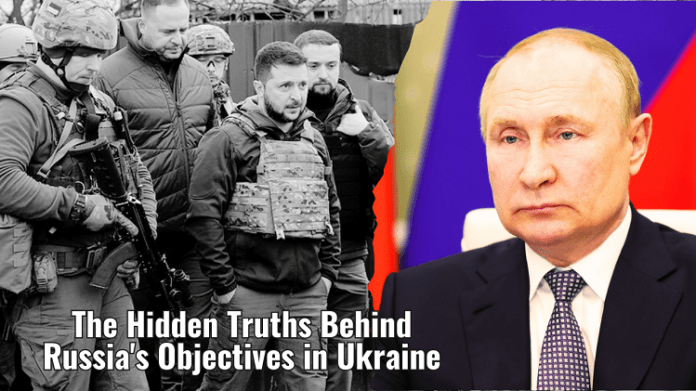| Translate This News In |
|---|
Russian President Vladimir Putin asserted during a lengthy news conference, his first since the onset of the full-scale invasion of Ukraine in February 2022, that peace with Ukraine hinges on the accomplishment of Russia’s objectives. This “direct line” program, spanning over four hours and broadcast by major channels, featured Putin fielding questions from journalists and ordinary Russians, with a significant focus on what he termed the “special military operation in Ukraine.”
Emphasizing the significance of sovereignty for the existence of Russia, Putin maintained that the country’s economy remained robust despite the ongoing conflict. However, the central theme quickly shifted to Ukraine, where Putin outlined the conditions for peace as “denazification, demilitarization, and its neutral status.” These objectives, reiterated since the war’s commencement, represent non-negotiable elements for Russia.
Putin disclosed that Russia presently has 617,000 troops engaged in Ukraine, with an additional 486,000 individuals voluntarily enlisting as contract soldiers alongside the 300,000 conscripts from the previous year. While he refrained from providing specific military casualty figures, he acknowledged the involvement of individuals close to him in private military companies, some of whom had lost their lives.
Contrary to this, a classified US intelligence report estimated that approximately 315,000 Russian soldiers had been either killed or wounded, constituting nearly 90% of Russia’s military personnel at the beginning of the invasion. The substantial discrepancy in casualty figures underscores the challenges in obtaining accurate information amid the ongoing conflict.
The news conference featured spontaneous questions from both Russian and international journalists, as well as a reported two million questions submitted by ordinary Russians, meticulously vetted beforehand. A war reporter based in occupied Luhansk, Ukraine, questioned Putin about Ukraine’s recent advancements on the east bank of the Dnipro River. Putin attributed the withdrawal of Russian forces to wooded areas as a strategy to protect soldiers, asserting that Ukraine’s motives were political, driven by a desire for increased military funding from Western allies.
In tandem with Putin’s statements, Nato Secretary General Jens Stoltenberg cautioned that if Putin succeeded in Ukraine, there was a genuine risk that his aggression would not cease there. Ukrainian President Volodymyr Zelensky also warned the EU summit that indecision on the Ukraine war could be exploited by Putin to Europe’s detriment.
Putin remained resolute in asserting Russian dominance across the Ukrainian front line, claiming improvements in the armed forces’ situation. Despite the limited movement on the front line, Russia focused its efforts on two eastern towns in the Donetsk region, Mariinka, and Avdiivka.
The Russian president downplayed the impact of Western sanctions and political isolation resulting from the invasion, expressing confidence that Russia could “move forward” despite these challenges. He also touched on relations with the United States and the EU, characterizing the US as important but accusing it of imperialism. Putin urged the US to show respect for other nations, emphasizing Russia’s willingness to restore relations under such conditions.
Addressing the issue of two American citizens, Evan Gershkovich and Paul Whelan, held in Russian jails, Putin stated that Russia seeks a mutually acceptable agreement for their release. He acknowledged ongoing dialogue on the matter and expressed hope for a solution.
In response to a question about potential changes to the criminal code preventing a “witch-hunt” against journalists, Putin questioned the characterization of a pro-Kremlin colleague as an opposition figure, seemingly confirming the targeting of opposition figures in Russia. This statement coincided with the ongoing incarceration of prominent opposition figure Alexei Navalny, facing a potential 19-year jail term with no recent access to his team.
Putin’s news conference provided insights into Russia’s perspective on the conflict in Ukraine, emphasizing the non-negotiable nature of its objectives for peace. The event underscored the complexities and divergent narratives surrounding the ongoing crisis, with implications extending beyond the region.


















